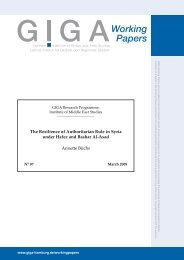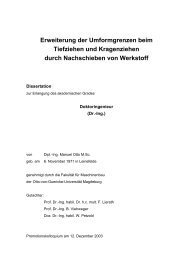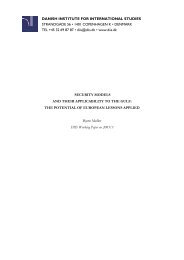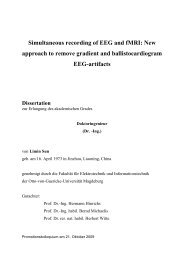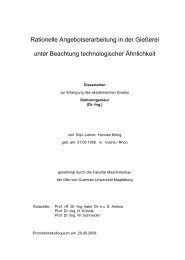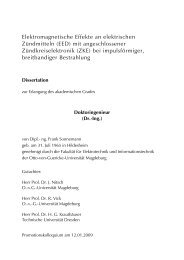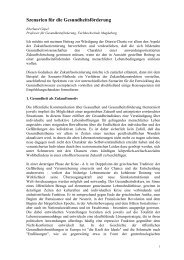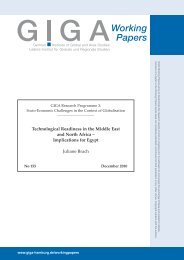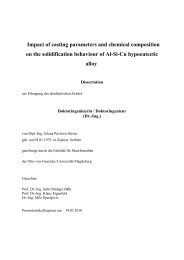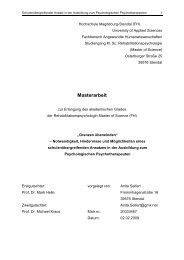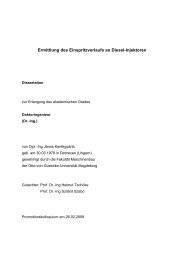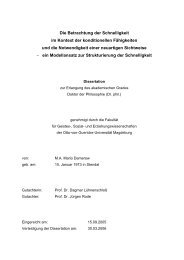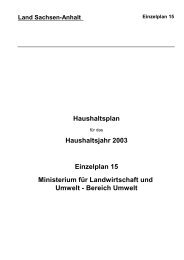Chapter 1
Chapter 1
Chapter 1
Create successful ePaper yourself
Turn your PDF publications into a flip-book with our unique Google optimized e-Paper software.
sectors (not specified under the new code) remain regu- previous system, but restrictions on investment in many<br />
lated (restaurants, financial services, mining, energy) so that support services remain in place. Under the new code, forabout<br />
40 percent of total investment (those specified in the eign investors need the approval of the Investment<br />
code and these other sectors not specified) still requires Commission for many service activities when foreign parprior<br />
Government approval. ticipation exceeds 50 percent of the share capital. The<br />
"Guide du Promoteur," August 1994, provides a list of activ-<br />
Foreign investment liberalization ities requiring approval: transportation; telecommunications;<br />
tourism; educational and cultural establishments;<br />
The largest share of Tunisia's FDI comes from Italy (40 per- construction, maintenance, and public works; real estate<br />
cent), followed by France and the United States (roughly 15 development; computer services and information technolpercent<br />
each). Historically, Tunisian authorities' views on ogy; consulting and auditing companies; and other services.<br />
foreign direct investment (FDI) have fluctuated between Strong foreign investment in many of these areas, including<br />
concerns of foreign domination to a recognition that FDI software development, auditing and consulting (such as<br />
creates jobs, transfers technology and know-how, and pro- international marketing, technology, and quality upgrading<br />
vides a critical impetus to higher growth. In spite of the gen- firms), telecommunications, and transportation would be<br />
erous incentives provided to export firms, the current highly beneficial in terms of the quality of services provided<br />
account convertibility of the dinar, easy transfer of invested<br />
capital, and the stable economic environment, FDI flows to<br />
and as a means of exerting competition on local firms.<br />
non-energy activities have been very low in recent years (figure<br />
3.3). Until recently, several activities have been mainly<br />
Offshore companies<br />
reserved for state ownership, effectively precluding private Another measure used to attract foreign investment since<br />
foreign investors: chemicals and petrochemicals; cement; 1972 is the offshore company law which gives incentives<br />
mining; electricity; telecommunications; transport (rail- (for example, duty free access to all inputs, tax free status)<br />
roads, airlines, and maritime); water/wastewater treatment to export-oriented (80 percent) companies. On balance,<br />
and distribution; and insurance. offshore companies have had a beneficial impact on the<br />
The Unified Investment Code makes FDI for all export Tunisian economy. The growth of manufactured exports<br />
activities (except agriculture) unrestricted. Foreign compa- over the past decade is due in large part to the offshore<br />
nies or individuals can now lease agricultural land, but they companies, which account for between one-third and half<br />
still cannot own agricultural land. These changes represent of Tunisia's merchandise exports. At the same time, the offa<br />
significant opening to foreign investors compared to the shore sector's integration with the domestic economy and<br />
its contribution to total FDI in Tunisia have been limited,<br />
FIGURE 3.3 since most foreign companies rent facilities (bonded ware-<br />
Tunisia: Foreign direct Investment houses), and have strong incentives to import their capital<br />
Millions of TD equipment and inputs from parent companies (box 3.2).<br />
40 cThe Unified Investment Code attempts to place domes-<br />
350 tic producers on a more equal footing with export compa-<br />
300 nies, but important differences in treatment remain: access<br />
250 to the local market for exporting companies; tax treatment;<br />
200 and the inefficient duty refund procedures for local compaso<br />
nies. The Government could increase domestic tax rev-<br />
100 enues by fully integrating the offshore companies into the<br />
50 domestic tax base, which would also ensure their equal<br />
990 1991 1992 1993<br />
treatment with domestic companies that are partial<br />
exporters. The government's continued efforts to improve<br />
* Nonenergy Q Energy infrastructure services, rationalize tax laws and investment<br />
SDurcc Ministry of Irtemrnai Cooperation and API (Inrwtrial ornotion AVncy). incentives, and make the tariff regime more neutral between<br />
STRENGThENING MARKET FORCES 33



